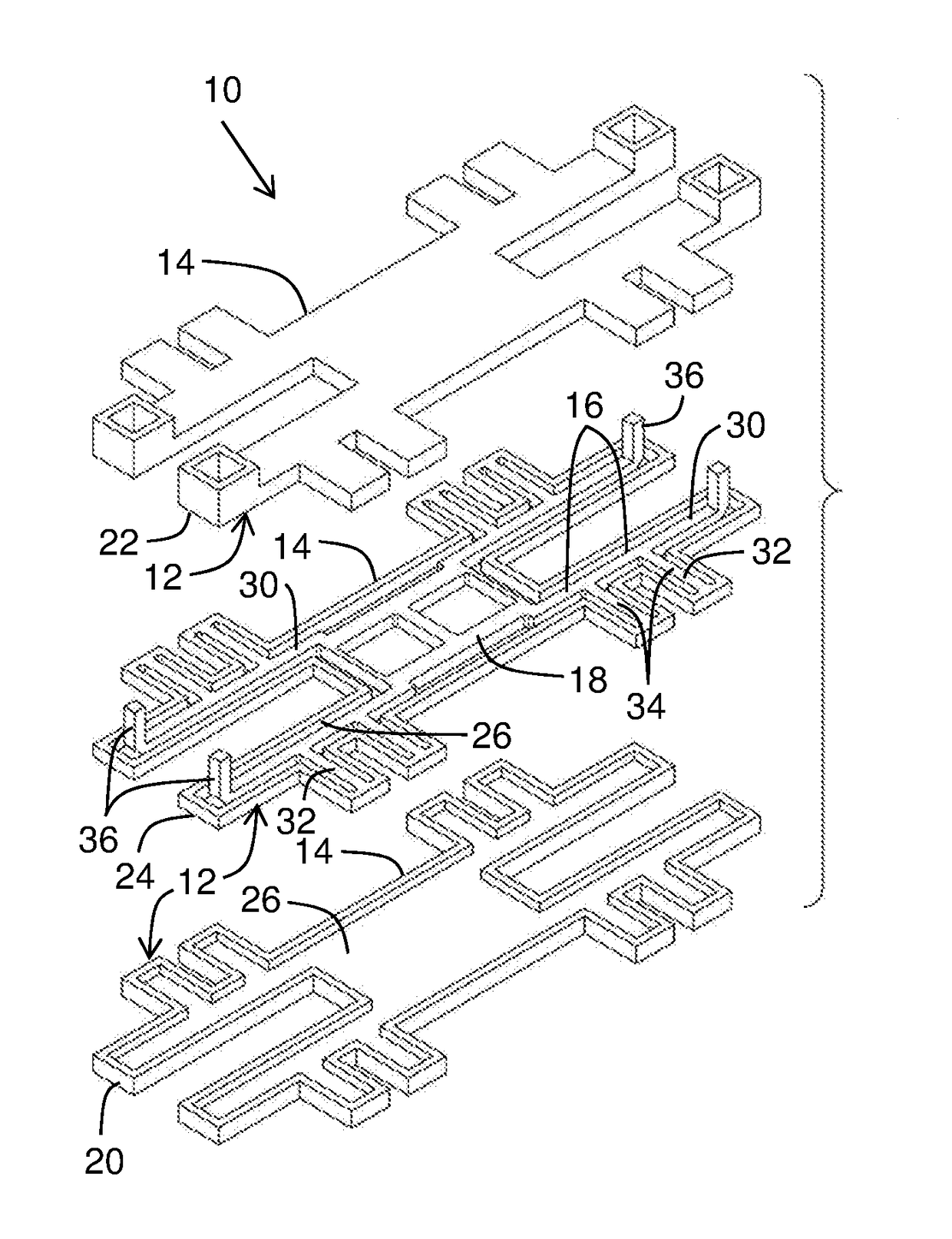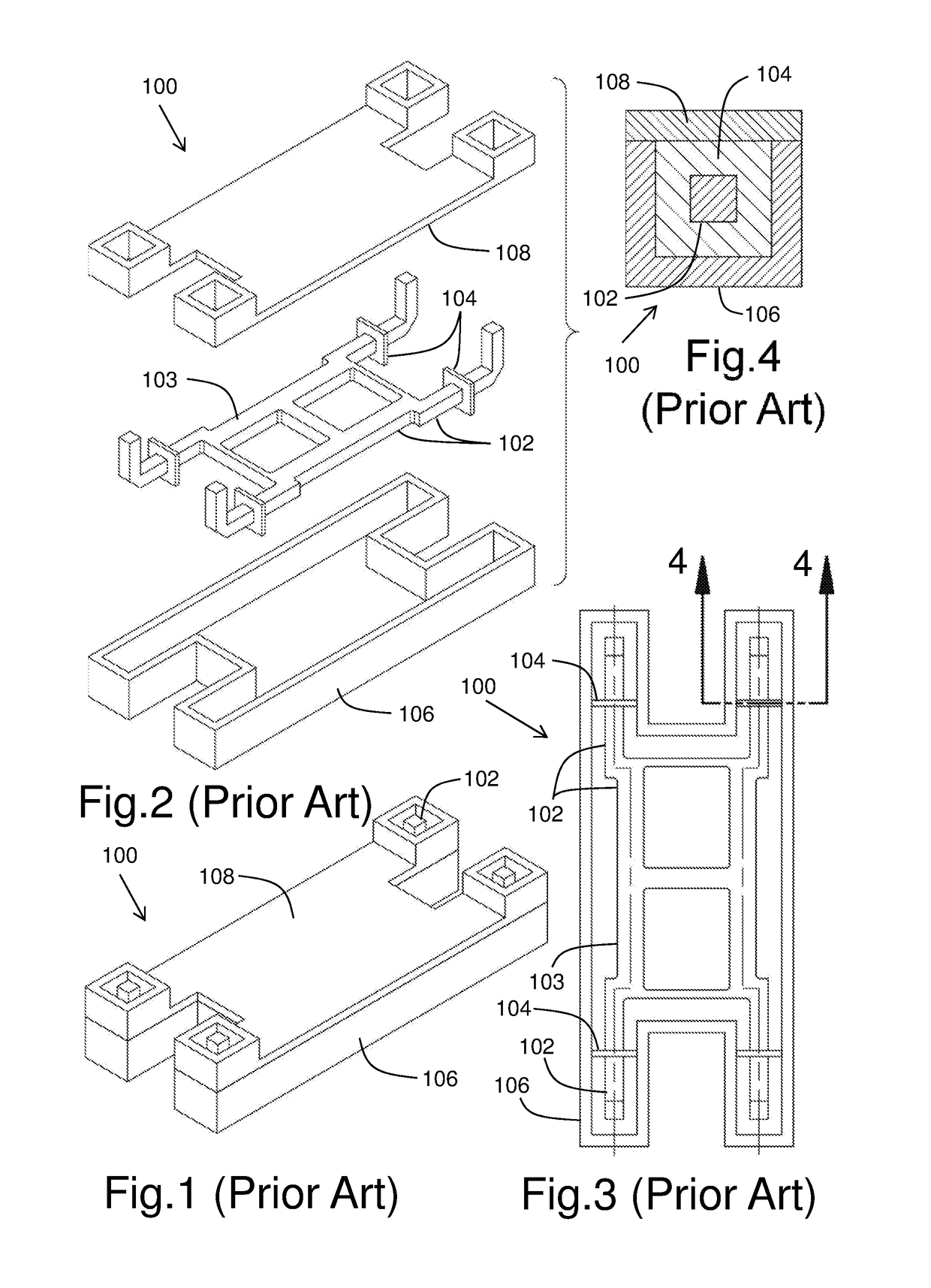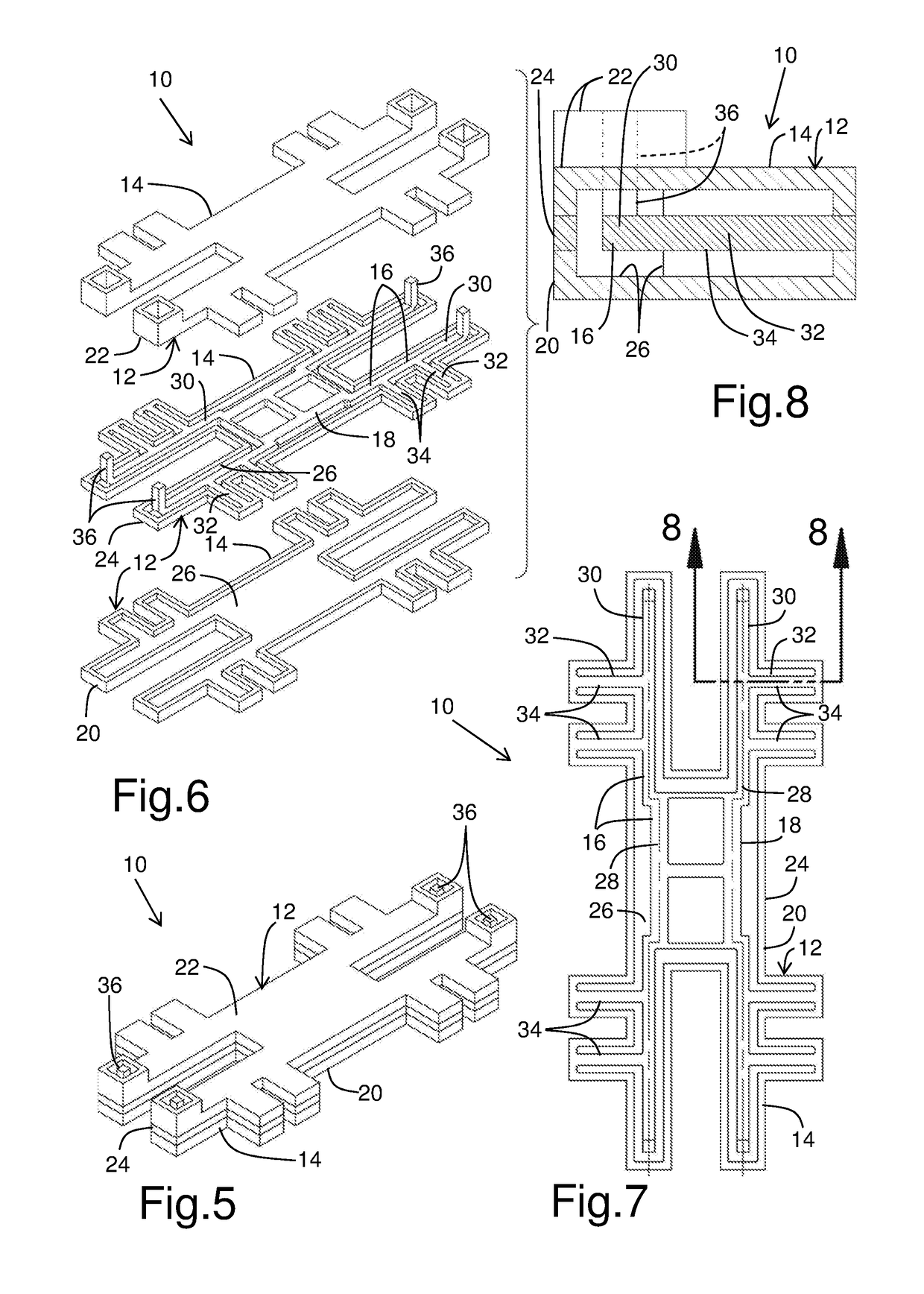Compact and lightweight TEM-line network for RF components of antenna systems
a technology of temline network and antenna system, which is applied in the field of compact and lightweight temline network for rf (radiofrequency) components of antenna system, can solve the problems of limiting the power handling of signal power, large overall volume and mass, and preventing their use in many applications, etc., and achieves excellent assembly precision, low pim products, and easy manufacturing.
- Summary
- Abstract
- Description
- Claims
- Application Information
AI Technical Summary
Benefits of technology
Problems solved by technology
Method used
Image
Examples
embodiment 10
[0053]The TEM-line coupler 10 typically includes a main body 12 defining an outer conductor 14 forming a generally closed (in cross-section) channeled path having an inner or center conductor 16 typically electromagnetically isolated therefrom at RF (Radio-Frequency) frequencies but electrically DC (Direct Current) connected (grounded) thereto at predetermined locations, and running into and along the channeled path and supporting antenna electromagnetic signals running there along. The outer conductor 14 is typically formed out of three layers, namely a bottom layer 20, a top layer 22, and an intermediate layer 24 located in-between. The center conductor 16 is supported within the channeled path only at at least one, and typically all of the predetermined locations, with no dielectric supports at all. In the embodiment 10 shown, the center conductor 16 includes a 3-branch coupler 18 generally centrally located.
[0054]At least the inner surface 26 of the channel path is electrically ...
embodiment 40
[0059]Referring to FIGS. 9 and 10, there is shown a TEM-line network or portion of a dual-band antenna feed system 40 architecture in accordance with an embodiment of the present invention. The dual-band antenna feed system 40 operates with first and second signals having their respective frequency band, such as Tx and Rx signals. In the embodiment 40 shown in FIGS. 9 and 10, the feed system has a waveguide central common Tx / Rx port 42 connectable to a feed horn (not shown).
[0060]The dual-band antenna feed system 40 typically includes two (2) different network architectures for both the first (Tx) end second (Rx) signal paths. The Rx signal path is typically realized in waveguide technology capable of generating dual polarization signals, as dual LP (linear polarization) or dual CP (circular polarization) signals, such that it could include a circular or square waveguides feed network with septum polarizers or alternatively an OMJ based network with RF signal combiners and a coupler...
PUM
 Login to View More
Login to View More Abstract
Description
Claims
Application Information
 Login to View More
Login to View More - R&D
- Intellectual Property
- Life Sciences
- Materials
- Tech Scout
- Unparalleled Data Quality
- Higher Quality Content
- 60% Fewer Hallucinations
Browse by: Latest US Patents, China's latest patents, Technical Efficacy Thesaurus, Application Domain, Technology Topic, Popular Technical Reports.
© 2025 PatSnap. All rights reserved.Legal|Privacy policy|Modern Slavery Act Transparency Statement|Sitemap|About US| Contact US: help@patsnap.com



